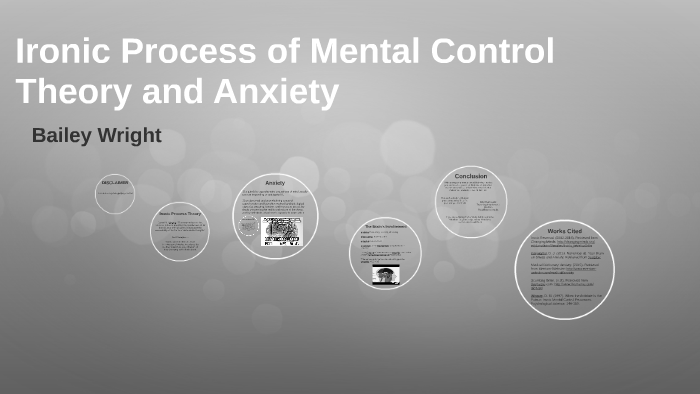Introduction
In the realm of decision-making, our minds can sometimes lead us astray, often making choices that are contradictory to our best interests. One such phenomenon is the Ironic Process Theory, a psychological concept that sheds light on our tendency to focus on unwanted thoughts or behaviors, leading us to inadvertently act upon them. In this blog post, we will explore the intricacies of the Ironic Process Theory, its prevalence in our daily lives, and the mental biases that contribute to this phenomenon. Additionally, we will provide practical strategies to help readers identify and avoid falling into this mental trap, allowing for more objective and rational decision-making.
Understanding the Ironic Process Theory
At its core, the Ironic Process Theory suggests that attempts to suppress certain thoughts or behaviors can lead to their increased occurrence. This paradoxical effect occurs due to the ironic monitoring process, wherein the brain actively searches for the very thoughts or behaviors it seeks to suppress. Psychologist Daniel Wegner, who introduced this concept, referred to it as the “white bear” problem: when asked to avoid thinking about a white bear, the very act of suppression makes the image of a white bear more salient and difficult to control.
Relevance in Decision-Making Processes
The Ironic Process Theory has significant implications for decision-making processes, influencing our choices in various domains of life. By understanding how this mental model operates, we can gain insights into why individuals and groups sometimes make irrational decisions that contradict their best interests. Let’s explore three distinct examples of the Ironic Process Theory in action.
- Personal Life Decisions: Imagine an individual trying to adhere to a strict diet. Despite their best intentions, the constant suppression of thoughts about unhealthy foods can actually intensify cravings, leading to “cheating” on the diet. This ironic rebound effect arises from the brain’s preoccupation with forbidden thoughts, ultimately sabotaging the individual’s goal.
- Business Scenarios: In the business world, companies often face public relations crises. When an organization attempts to suppress negative information or address a scandal, it may inadvertently draw more attention to the issue. This effect can lead to a public backlash, as the act of suppressing information can trigger curiosity and intensify interest in the matter.
- Public Policy-Making: In the realm of public policy, efforts to combat certain societal issues can sometimes backfire. For instance, when authorities try to suppress the discussion or access to sensitive topics like drugs, it can inadvertently create a rebellious subculture that glorifies drug use. This occurrence exemplifies how attempts to control information or behaviors can lead to unintended consequences, perpetuating the very problem they sought to eradicate.
Psychological Underpinnings and Mental Biases
The Ironic Process Theory is closely intertwined with various psychological underpinnings and mental biases. One prominent contributor to this phenomenon is the availability heuristic, which leads individuals to rely on immediate examples that come to mind. When attempting to suppress certain thoughts or behaviors, our minds naturally gravitate towards those very thoughts due to their increased accessibility. This bias can cause us to underestimate the frequency or intensity of unwanted thoughts, ultimately amplifying their presence.
Another psychological factor at play is cognitive load. When our cognitive resources are strained, such as during times of stress or multitasking, our ability to suppress unwanted thoughts weakens. This weakened control allows these thoughts to resurface more frequently, perpetuating the ironic rebound effect.
Additionally, the confirmation bias can exacerbate the Ironic Process Theory. This bias leads individuals to seek information that confirms their pre-existing beliefs and opinions, while disregarding contradictory evidence. When trying to suppress unwanted thoughts, individuals may selectively attend to information that aligns with those thoughts, inadvertently reinforcing their occurrence.
Identifying and Avoiding the Ironic Process Trap
Recognizing when we are succumbing to the Ironic Process Theory is crucial for making more objective decisions. Here are some strategies and tips to help readers avoid this mental trap:
- Mindfulness and Acceptance: Rather than actively suppressing unwanted thoughts, practicing mindfulness and acceptance can help individuals acknowledge these thoughts without judgment. By embracing their presence and letting them pass, individuals can reduce the power of the ironic rebound effect.
- Reframe Thought Suppression: Instead of focusing on what not to think about, direct your attention toward more positive or productive thoughts. By occupying your mind with constructive ideas or engaging activities, you can divert attention away from the suppressed thoughts.
- Mental Flexibility: Cultivating mental flexibility enables individuals to adapt their thought patterns and explore alternative perspectives. By actively challenging rigid beliefs and being open to new information, individuals can reduce the influence of confirmation bias and mitigate the Ironic Process Theory.
Implications and Conclusion
The Ironic Process Theory reveals a fascinating aspect of human psychology, shedding light on how our attempts to suppress thoughts or behaviors can ironically intensify their occurrence. By understanding the prevalence of this phenomenon in various contexts, from personal life decisions to public policy-making, we can become more aware of the potential pitfalls in our decision-making processes.
With the knowledge of the mental biases that contribute to the Ironic Process Theory, we can actively identify when we might be falling into this trap. By employing practical strategies such as mindfulness, acceptance, reframing, and mental flexibility, we can navigate decision-making with greater objectivity and rationality.
Ultimately, awareness and active avoidance of the Ironic Process Theory can lead to more informed and thoughtful choices, both in our personal lives and as a society. By acknowledging the power of this mental model, we empower ourselves to break free from its grip and make decisions that align with our true best interests.
